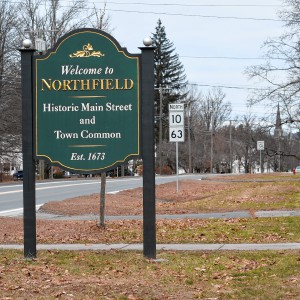Beacon Hill Roll Call: April 24 to April 28, 2023
| Published: 05-05-2023 1:44 PM |
Beacon Hill Roll Call records local representatives votes on six roll calls from the week of April 24 to April 28. There were no roll calls in the Senate last week.
All roll calls in the House were on matters relating to House passage of a $56.2 billion fiscal year 2024 budget.
Most of the decisions on which representatives’ amendments are included or not included in the budget are made behind closed doors. Of the 1,573 budget amendments proposed, most of them were bundled into consolidated “mega” amendments. This year there were seven mega amendments and all but one, which had just one vote against it, were approved unanimously. There is no real “debate” on the House floor. Everyone who spoke on any of the consolidated amendments spoke in favor of them.
The system works as follows: Representatives file amendments on various topics. All members then pitch their amendments to Democratic leaders who draft consolidated amendments that include some of the individual representatives’ amendments while excluding others.
The categories of consolidated amendments include many subjects including programs relating to public safety, judiciary energy, environmental affairs, housing, labor and economic development.
Article continues after...
Yesterday's Most Read Articles
 New owners look to build on Thomas Memorial Golf & Country Club’s strengths
New owners look to build on Thomas Memorial Golf & Country Club’s strengths
 Survey shows Northfield residents want new development — but not near their homes
Survey shows Northfield residents want new development — but not near their homes
 Orange man gets 12 to 14 years for child rape
Orange man gets 12 to 14 years for child rape
 As emergency action plan is crafted, Tree House to maintain 1,500 capacity for summer
As emergency action plan is crafted, Tree House to maintain 1,500 capacity for summer
 Real Estate Transactions: April 19, 2024
Real Estate Transactions: April 19, 2024
 Man granted parole for role in 2001 deaths of 2 Dartmouth College professors
Man granted parole for role in 2001 deaths of 2 Dartmouth College professors
Supporters of the system say that any representative who sponsored an excluded amendment can bring it to the floor and ask for an up or down vote on the amendment itself. They say this system has worked well for many years.
Opponents say that rarely, if ever, does a member bring his or her amendment to the floor for an up or down vote because that is not the way the game is played. It is an “expected tradition” that you accept the fate of your amendment as determined by Democratic leaders.
Rep. Russell Holmes, D-Boston, was the only member who voted against one of the consolidated amendments — the one adding an estimated $10.5 million in spending on public safety and the judiciary.
The House, 156 to 0, approved and sent to the Senate a $56.2 billion fiscal year 2024 state budget after adding an estimated $120 million in spending during three days of debate. The House version now goes to the Senate, which will approve a different version. A House-Senate conference committee will eventually craft a plan that will be presented to the House and Senate for consideration and then sent to the governor.
“From critical investments in health care and workforce development, to funding for new initiatives that are designed to increase educational opportunities, better support working families, and provide for a safer and more reliable public transportation system, the House’s fiscal year 2024 budget will help to make Massachusetts more affordable for residents, while allocating support for the commonwealth’s most consequential institutions,” said House Speaker Ron Mariano, D-Quincy.
“This budget builds off the successes of the last few years by prioritizing our residents. Whether it is greater investments into programs like housing stability, food security or early education, these initiatives are a reflection of our shared values,” said Rep. Aaron Michlewitz, D-Boston, chair of the House Committee on Ways and Means. “By reinvesting in the people of the commonwealth, we will continue to assist those recovering from this pandemic while making our economy more competitive and equitable for years to come.”
A “Yes” vote is for the budget.
Rep. Natalie Blais — Yes
Rep. Aaron Saunders — Yes
Rep. Susannah Whipps — Yes
The House, 25 to 132, rejected an amendment that would remove a section in the budget that exempts tax revenue generated from the recently voter-approved millionaire’s tax from counting toward the allowable state tax revenue limitations, under Chapter 62F, which provides that whenever revenue collections in a fiscal year exceed an annual cap tied to wage and salary growth, the excess is returned to taxpayers. Last year, $3 billion in refunds were returned to taxpayers when the law was triggered for just the second time since its passage in 1986. The revenue from the millionaire’s tax is deposited into the new Education and Transportation Stabilization Fund.
“There is no justification for excluding the millionaire’s tax revenues from the Chapter 62F calculations, as all other taxes, including taxes constitutionally designated toward specific uses like the gas tax, are included in the current calculation, and tax rate increases have not been held aside from the formula previously,” said amendment sponsor GOP House Minority Leader Rep. Brad Jones, R-North Reading. “Attempting to exclude these revenues is a slap in the face to the state’s taxpayers and the voters who supported this ballot question.”
Opponents said the amendment will put the new revenue in jeopardy. They argued this new revenue is earmarked for education and transportation, and must be protected and treated differently than other tax revenue.
Revenue Committee House Chair Mark Cusack, D-Braintree, did not respond to repeated requests by Beacon Hill Roll Call to comment on why he urged representatives to vote against the amendment.
A “No” vote is against the amendment and supports exempting the revenue from the allowable state tax revenue limitations.
Rep. Natalie Blais — No
Rep. Aaron Saunders — No
Rep. Susannah Whipps — No
The House, 157 to 0, approved a $31.5 million consolidated amendment that funds labor and economic development programs.
“We are continuing to see positive data with jobs, unemployment rates and the labor market,” said Rep. Josh Cutler, D-Duxbury, House chair of the Committee on Labor and Workforce Development. “These datapoints tell us that the investments we’ve made in our workforce are having a positive impact. This House budget we approved … continues this trajectory by investing more resources in our people.”
A “Yes” vote is for the consolidated amendment.
Rep. Natalie Blais — Yes
Rep. Aaron Saunders — Yes
Rep. Susannah Whipps — Yes
The House, 158 to 0, approved a $7.3 million consolidated amendment that funds energy, environmental affairs and housing programs.
“We are on the front lines of the climate crisis and if we are to minimize irreversible impacts, we must make unparalleled changes,” said Rep. Jeffrey Roy, D-Franklin, House chair of the Joint Committee on Telecommunications, Utilities and Energy. “The House budget and adopted energy and environmental amendment together commit 1.25% of the state’s total budget to implement the policies and strategies stemming from robust climate bills passed over the past few sessions.”
A “Yes” vote is for the consolidated amendment.
Rep. Natalie Blais — Yes
Rep. Aaron Saunders — Yes
Rep. Susannah Whipps — Yes
The House, 157 to 1, approved a $10.5 million consolidated amendment that funds public safety and judiciary.
“The budget is a testament to our unwavering dedication toward criminal justice reform, reducing recidivism, providing access to justice and essential services for inmates, as well as improving police and fire departments in municipalities and supporting directed patrols by the State Police,” said Rep. Carlos Gonzalez, D-Springfield, chair of the Committee on Public Safety and Homeland Security.
Rep. Russell Holmes, D-Boston, did not respond to repeated requests by Beacon Hill Roll Call to comment on why he was the only representative who voted against the amendment.
A “Yes” vote is for the consolidated amendment.
Rep. Natalie Blais — Yes
Rep. Aaron Saunders — Yes
Rep. Susannah Whipps — Yes
The House, 157 to 0, approved a $5.2 million consolidated amendment that funds constitutional officers, state administration and transportation.
This amendment includes a $9,000 pay raise, from $36,025 to $45,025, for the eight members of the Governor’s Council that provides advice and consent on gubernatorial appointments, pardons and prison sentence commutations.
Rep. John Lawn, D-Watertown, did not respond to repeated requests by Beacon Hill Roll Call to comment on why he proposed the section of the consolidated amendment that provides the 25% pay hike.
“The budgeting process at the State House is completely broke,” said Paul Craney, spokesperson for the Massachusetts Fiscal Alliance. “This is just one example of how taxpayer dollars get thrown around with no account. There’s absolutely no excuse why the amendment sponsor or a member of the House leadership team couldn’t have made their case as to why they feel these pay increases are necessary. Why even bother having a House chamber if they’re going to conduct all of their debates in rooms that the press and public are barred from entering.”
A “Yes” vote is for the consolidated amendment that includes the $9,000 pay raise.
Rep. Natalie Blais — Yes
Rep. Aaron Saunders — Yes
Rep. Susannah Whipps — Yes
In 2021, former Gov. Charlie Baker signed “Laura’s Law” that would require all hospitals to meet minimum criteria and standards that ensure safe, timely and accessible patient access to hospital emergency departments. The Department of Public Health has finally established a set of regulations for Laura’s Law that hospitals must comply with by Jan. 1, 2024.
Laura’s Law was named in memory of Laura Levis, a 34-year-old woman who, on Sept. 16, 2016, went to CHA Somerville Hospital while suffering a fatal asthma attack, but was unable to get inside. Peter DeMarco, Levis’ husband, has led the campaign for passage of the legislation. He is a journalist who wrote about Laura’s death almost five years ago for The Boston Globe.
According to DeMarco’s story, “Laura chose a locked door to try to access the emergency room because the correct door was not properly marked. Though Laura was on surveillance video, the hospital security desk was left unattended all night, so no one saw her. When a nurse from the emergency department eventually looked out the door for Laura, she did not see her, as the spot where Laura collapsed was in near darkness.” Laura had called 911 but by the time first responders found her, she had collapsed in cardiac arrest and died a few days later.
“I know Laura’s name is on these new regulations, but they are not just for the rare case of someone collapsing outside an emergency department door — far from it,” DeMarco said at a State House news conference last week. “These new regulations will help all of us find and get inside emergency departments faster, and for some people the difference between getting to a doctor 10 minutes faster or wasting 10 minutes trying to find the emergency department due to poor signage, confusing layouts, going to the wrong door, could be life-changing. It was for Laura.
“I hope so much these new regulations serve as a stepping stone for other states to take a serious look at whether their residents could benefit by establishing rules for emergency department signage, lighting, wayfinding and security monitoring as well,” DeMarco continued. “Maybe that starts with every state in New England.”
“There is no way to change the past, but we have done our best to expect a future with optimal outcomes when any of us visits a hospital emergency department,” said Sen. Pat Jehlen, D-Somerville, co-sponsor of the legislation. “I continue to thank Peter, the Department of Public Health and other advocates committed to honoring Laura’s memory by collaborating on this new set of regulations that I believe will save lives.”
“After years of advocacy, I am grateful to Peter for his extensive research and willingness to share Laura’s story, which led to the passage of our bill, Laura’s Law, in early 2021,” said co-sponsor Rep. Christine Barber, D-Somerville. “After more than two years of additional work, new regulations and guidance from the Department of Public Health reflect a number of new requirements to ensure all hospitals in Massachusetts will follow appropriate safety measures on lighting, security and wayfinding. Particularly in an emergency situation, patients need clear and obvious information about how to get to care quickly, no matter where people are seeking emergency care.”
The rules are aimed at eliminating as much confusion as possible for patients in crisis who rush to an emergency department, and to provide fail-safes should they have difficulty getting inside. Regulations include requiring any prominent door that is locked at night, as well as a hospital’s main door and emergency department door and ambulance-bay door, to have an audio-video intercom connecting a lost patient to a live operator as well as a duress alarm; requiring hospitals to set up directional signs to their emergency departments, starting the moment you reach the property, so that after you pass one sign another is already within your sight; requiring doors and patient drop-off and pick-up areas to be brightly lighted and on surveillance 24 hours a day; and requiring each emergency department to have its own GPS address for navigation purposes if its doors are not located at the hospital’s main address.
The Election Laws Committee has recommended passage of a proposed constitutional amendment to restore the right to vote for incarcerated felons. Under a constitutional amendment approved by voters in 2000, these felons were stripped of the right to vote.
“We’ve had this fundamental right in one of the oldest constitutions, the constitution that our U.S. constitution is based on, up until the 2000s,” said sponsor Rep. Erika Uyterhoeven, D-Somerville. “And it was taken away in our lifetime. That didn’t fall out of the sky. It came from the context of the tough-on-crime era in the ’90s as a response to civic engagement and organizing among people who are incarcerated, and civic engagement and the right to vote are fundamental human rights.”
“I think [this proposed amendment] fits into what is becoming a recurring theme for this session, which is ‘We really don’t care what the voters do, we can do what we want,’” said House GOP Minority Leader Brad Jones, R-North Reading, one of three legislators on the committee who voted against the measure. He added that a majority of voters in all of the state’s counties voted for the measure in 2000. “During the period of your incarceration, because if you’re incarcerated then you’re separated from society, you should not necessarily be involved in electing the officials and crafting the laws that govern that society.”
The proposed constitutional amendment needs the votes of a majority of the 200-member Legislature in the 2023-2024 session and the same in the 2025-2026 session to be on the November 2026 ballot for voters to decide.

 $50K allocated for Poet’s Seat Tower sandblasting as officials mull vandalism prevention
$50K allocated for Poet’s Seat Tower sandblasting as officials mull vandalism prevention Deerfield voters to decide 8 capital projects at Town Meeting
Deerfield voters to decide 8 capital projects at Town Meeting Shelter money fading, but ‘not at the end of the line’
Shelter money fading, but ‘not at the end of the line’ Greenfield City Council approves borrowing $1.18M for Main Street redesign, sewer repairs
Greenfield City Council approves borrowing $1.18M for Main Street redesign, sewer repairs
